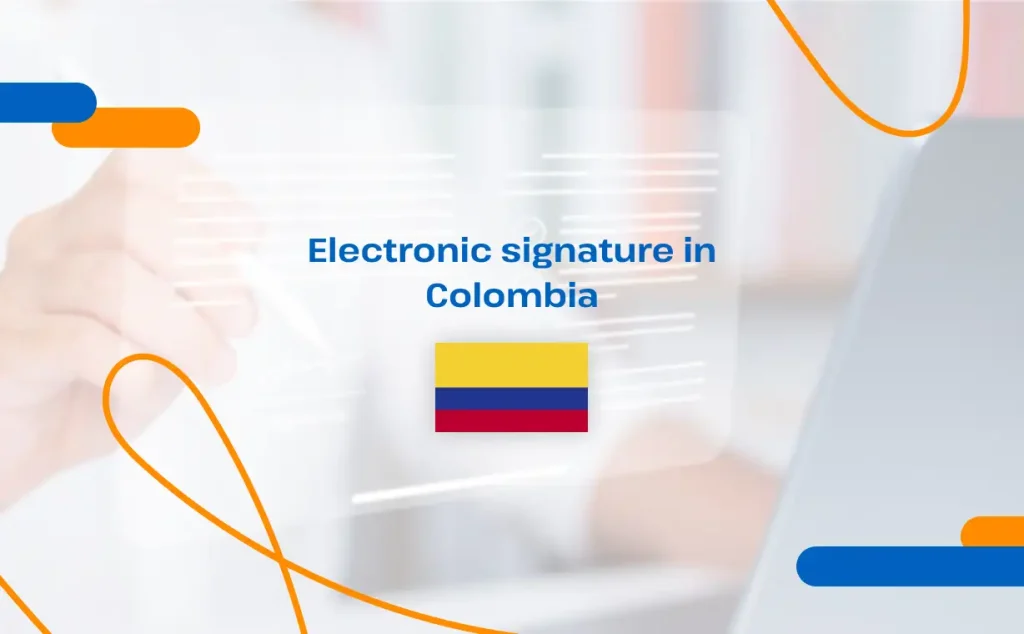
Updated on December 2023
The electronic signature in Colombia must guarantee the authenticity, confidentiality and integrity of the signed message or document. For this purpose, different authentication methods or factors or identity data are used. The main types are:
- Digital signature: It is a numerical value that is added to a message or document and guarantees its integrity and authenticity by means of asymmetric cryptography and a digital certificate.
- Electronic signature: Any method that allows the identification of a person in relation to a message or document.
- Certified electronic signature: Any method of electronic signature made with identity factors or data, which includes a digital certificate to guarantee its security and integrity.
Regulations on electronic signatures in Colombia
Electronic signatures in Colombia are mainly governed by two laws:
Law 527 of 1999
First, Law 527 of 1999. Whereby the access and use of data messages, electronic commerce and digital signatures are defined and regulated, and certification entities are established and other provisions are issued.
It was issued on August 18, 1999 by the Congress of the Republic, with the purpose of defining and regulating the use of data messages in all activities of the public and private sector. This law is based on the constitutional principles of legality, legal certainty, equality, free competition, protection of the public and private sectors.
Decree 1747 of 2000
The second law on electronic signature in Colombia is Decree 1747 of 2000. By which Law 527 of 1999 is partially regulated, in relation to certification entities, certificates and digital signatures.
It was issued on September 11, 2000 by the President of the Republic, in exercise of article 189 numeral 11 of the Constitution. This law partially regulates the previous law in relation to certification entities, certificates and digital signatures. This law is based on the constitutional principles mentioned above, as well as on the principles of public and private international law.
Decree 2364 of 2012
Regulates and complements Article 7 of Law 527 of 1999, establishing a legal framework for the use of electronic signatures and differentiating it from digital signatures. This decree allows the parties to a legal relationship to agree on the use of electronic mechanisms to sign documents, as long as their security is guaranteed. In addition, technological neutrality allows the use of any means of authentication as long as it complies with the legal and technical requirements; for example, passwords, biometric data or cryptographic keys, as long as they are appropriate and reliable for the intended use. However, it determines that these mechanisms are not automatically opposable to third parties, unless there is a regulatory framework that allows it.
Thus, Decree 2364 of 2012 provides a solid basis for the secure implementation of electronic signatures in Colombia.
Viafirma is a registered trademark in Colombia
Viafirma is a registered trademark and recognized in Colombia since November 20, 2019, by the Superintendence of Industry and Commerce of the Republic of Colombia.
If you are looking for an electronic signature solution in Colombia, we have in Viafirma the solution that fits your needs.
Contact us and we will inform you about our products and electronic signature solutions.